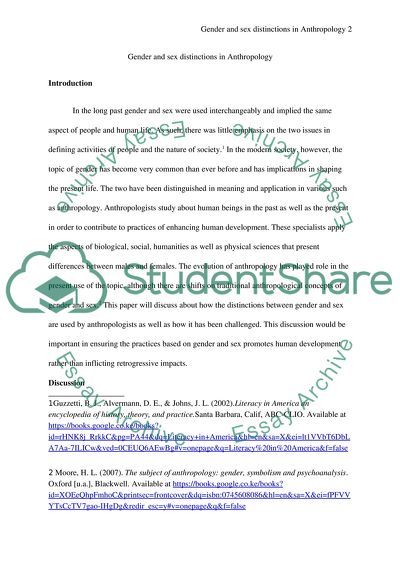Cite this document
(Gender and Sex Distinctions in Anthropology Essay Example | Topics and Well Written Essays - 1750 words, n.d.)
Gender and Sex Distinctions in Anthropology Essay Example | Topics and Well Written Essays - 1750 words. https://studentshare.org/anthropology/1876220-how-has-the-distinction-between-sex-and-gender-been-used-by-anthropologists-and-how-has-it-been-challenged
Gender and Sex Distinctions in Anthropology Essay Example | Topics and Well Written Essays - 1750 words. https://studentshare.org/anthropology/1876220-how-has-the-distinction-between-sex-and-gender-been-used-by-anthropologists-and-how-has-it-been-challenged
(Gender and Sex Distinctions in Anthropology Essay Example | Topics and Well Written Essays - 1750 Words)
Gender and Sex Distinctions in Anthropology Essay Example | Topics and Well Written Essays - 1750 Words. https://studentshare.org/anthropology/1876220-how-has-the-distinction-between-sex-and-gender-been-used-by-anthropologists-and-how-has-it-been-challenged.
Gender and Sex Distinctions in Anthropology Essay Example | Topics and Well Written Essays - 1750 Words. https://studentshare.org/anthropology/1876220-how-has-the-distinction-between-sex-and-gender-been-used-by-anthropologists-and-how-has-it-been-challenged.
“Gender and Sex Distinctions in Anthropology Essay Example | Topics and Well Written Essays - 1750 Words”. https://studentshare.org/anthropology/1876220-how-has-the-distinction-between-sex-and-gender-been-used-by-anthropologists-and-how-has-it-been-challenged.


